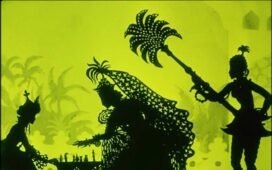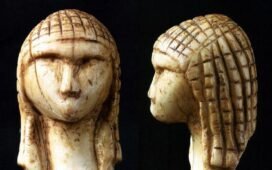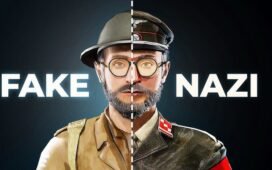When we speak English, we might say we’re speaking the language of Samuel Johnson, the man who wrote its first dictionary. Or we could say we’re speaking the language of Shakespeare, who coined more English terms than any other individual in history. It would make just as much sense to describe ourselves as speaking the language of the King James Bible, the mass printing of which did so much to standardize English, steamrolling flat many of the countless local variations that existed in the early seventeenth century. But as many an Englishman (and more than a few Americans) would be loath to admit, when we speak English, we are, much of the time, actually speaking French.
“In 1066, the Normans turn up and seize the English throne from the Anglo-Saxons says YouTuber Robwords in the new video above, describing the single most important event in the entire history of the English language, which he recounts in just 22 minutes. “William the Conqueror becomes king, and Norman French becomes the language of England’s élite.”
Under its new ruler, the country’s earls, thanes, and athelings would be called barons, dukes, and princes. “The now-subdued Anglo-Saxons needed to learn French words if they wanted to get by, so English absorbs a whole host of French terms associated with power, justice, art, government, law, and culture — such as power, justice, art, government, law, and culture,” to name just a few.
This thoroughgoing Frenchification gave rise to what we now call Middle English, as distinct from the Old English spoken before. As noted by RobWords, about 85 percent of Old English vocabulary is no longer in use today, yet we’re still “using Old English in every sentence that we utter,” not least when we break out such irregular-seeming plurals as mice, oxen, and wolves. Tuesday, Wednesday, Thursday, and Friday make reference to “the Anglo-Saxons’ pre-Christian gods.” And even in the fast-changing, slang-ridden, internet-influenced, and — for better or for worse — highly “globalized” English we speak today, we can still hear dim echoes of the ancient ancestor linguists call Proto-Indo-European. Perhaps that’s why, despite being so widely spoken, English is still so tricky to learn: when we speak it, we’re speaking not just a language, but many languages all at once.
Related content:
The History of the English Language in Ten Animated Minutes
Tracing English Back to Its Oldest Known Ancestor: An Introduction to Proto-Indo-European
Where Did the English Language Come From?: An Animated Introduction
The Tree of Languages Illustrated in a Big, Beautiful Infographic
The Alphabet Explained: The Origin of Every Letter
Based in Seoul, Colin Marshall writes and broadcasts on cities, language, and culture. His projects include the Substack newsletter Books on Cities and the book The Stateless City: a Walk through 21st-Century Los Angeles. Follow him on the social network formerly known as Twitter at @colinmarshall.















